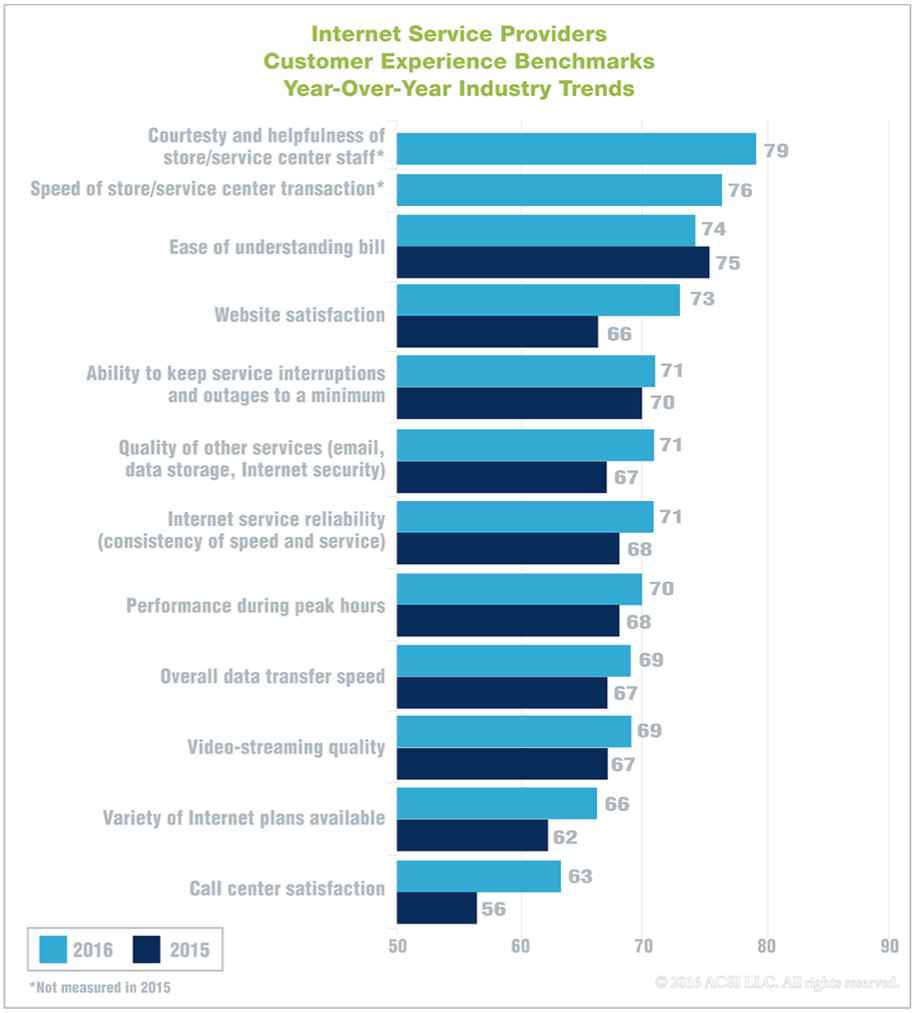Survey Says: You Still Hate Your Cable Company, But Maybe A Little Less Than Before Image courtesy of .sanden.
A major annual consumer satisfaction survey is out, and it’s a mixed bag for the cable and telecom sector and all of us who use it. The bad: pay-TV, broadband, phone, and wireless companies still pretty much really suck, and most of us are very dissatisfied with them. The good: year over year, most of them are finally starting to suck less than they used to!
That news comes from the American Customer Satisfaction Index (ACSI), which for several years has been ranking, as you would think, Americans’ overall customer satisfaction with several companies and industries. Their annual telecommunications report (PDF) is always an interesting read, because it’s where you find all the really awful numbers.
Last year, for example, Time Warner Cable managed to capture the lowest score of any company, not just of telecom providers — and that was just a repeat of its 2014 performance. Comcast and Charter — now TWC’s parent company — were also at the back of the pack last year, generally leaving their subscribers feeling somewhere between miserable and displeased.
So how does the situation look this year? As ACSI Managing Director David VanAmburg said in a statement: “It’s not too hard for cable companies to improve when their starting point is the cellar.”
Verizon FiOS has retained its position as favorite pay-TV service in the ACSI, dropping only one point from last year in satisfaction. However, even the best-in-class position still only means a score of 70/100. (That’s a C-, for most of us, though at least a passing grade.)
AT&T’s U-verse service and DirecTV satellite service come in right behind FiOS, with scores of 69 and 68 respectively. Dish is right behind them with a 67, and Bright House Networks — about to be part of Charter — rounds out the top five with a 66.
We do have to give some credit to Comcast: apparently the action plan for sucking less the company put into place a year ago has paid off. While the cable giant still ranks in the bottom half of all the cable companies (7th place out of 12), they have seen a dramatic improvement in their score. Where in 2015 they received a 54/100, this year they’re up to 62/100. Time Warner Cable, too, saw a similar percentage improvement from last year — but went only from 51/100 in 2015 to 59/100 this year.
Pay-TV is in a precarious position: with cord-cutting on the rise, they have to work hard to retain video customers. Unfortunately, the same level of improvement does not have to apply to broadband services, where those same companies largely enjoy local monopoly status.
FiOS is at the top of the internet charts just as it was for TV, managing to hit 73 out of 100 for satisfaction there. Cablevision comes in second, with a 69, and Bright House and Time Warner Cable — again, both shortly to be Charter — also hit the top five at 67 and 66. (Charter itself comes in at 63/100, which is actually a significant improvement over last year’s abysmal 57.)
But here, alas, is where we still see where Comcast earns its loathing: the giant ISP sees 5% improvement over its 2015 score, but still manages only to scrape up a 59/100. Still, better to be Comcast than Frontier: the bottom-ranking ISP has lost 8% from last year, rounding out the list with a 56/100.
In general, it seems we find the actual internet-service part of “internet service provider” to be acceptable, and our bills to be pretty straightforward… but when it comes to having to call and talk to someone, we’re sick and tired of phone tree hell.
Lack of competition is what triggers poor service, higher prices, and more dissatisfaction, says the ACSI. “Innovation tends to be strongest in markets with multiple companies vying for consumer preference,” said Claes Fornell, founder and Chairman of ACSI.
And that doesn’t describe all parts of the telecom industry equally well: “There are numerous wireless carriers and plenty of different cell phones to choose from. The same is not true for pay TV and ISPs, where consumers are usually beholden to a duopoly.”
Want more consumer news? Visit our parent organization, Consumer Reports, for the latest on scams, recalls, and other consumer issues.


